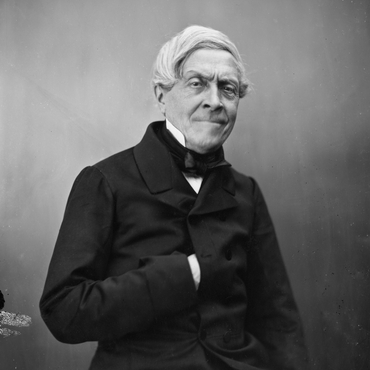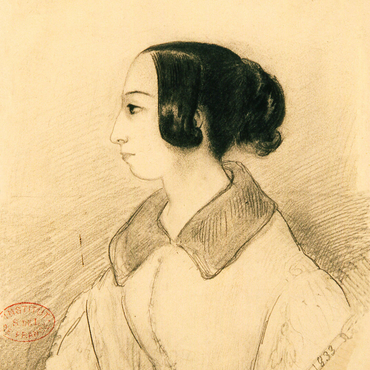
- Home
- King of Lighthouses
- Visitors to the lighthouse
- Cordouan and lighthouse history according to Michelet
"That poor Cordouan, that respectable martyr of the seas and victim of the tempests, is only too little known". Thus begins the few lines that Jules Michelet (1798–1874) devotes to Cordouan in his book The Sea (1861), in the chapter entitled "The Beacons". What was the great nineteenth-century chronicler of France's political, economic and cultural upheavals doing writing about a lighthouse? Michelet, who had been appointed to the chair of history at the Collège de France and the author of a magisterial Histoire de France, fell into disgrace after Napoleon III's coup d’état. Nevertheless, he continued to write history, as well as other, more surprising books, including Love (1858) and Woman (1859). In June 1859, Michelet went for a holiday at Saint-Georges-de-Didonne, where he stayed for six months. He kept "regular company" with the lighthouse, at which he gazed each day. He began to work on The Sea, which was published two years later. This encyclopaedic work encompasses every aspect of the sea, from the birth of the oceans to the biology of the species it contains. Michelet makes frequent mention of human activities along the shoreline, including sea bathing. He paid particular attention to the "leisure class" – in the words of the American sociologist Thorstein Veblen – who flocked to seaside resorts, including those along the Royan coast. Michelet did not content himself with the view of Cordouan and various tales told by the local seagoing populations. Leaving aside allusions to Alexandria, he used the "white phantom" of the estuary as a jumping-off point for a historical and forward-looking analysis of the growing number of lighthouses on coastlines around the world. Waxing poetically about the "rays of Fresnel", Michelet foregrounds France's historic role in both lighting and lighthouse construction. He was certainly one of the first to perceive, via Cordouan, the symbolic and cultural aspect of lighthouses, "those friendly fires, those true and welcoming homes of the storm-tried mariner", beneath which "pleasant it is to seat oneself".
